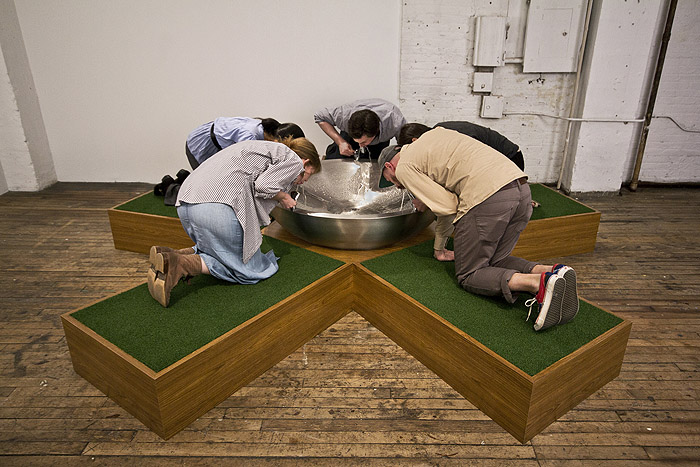Lisa Dillin
Stemming from an interest in the psychology of the individual in contemporary culture as compared with the primitive psychology of our ancestors, this work offers a synthesis that straddles both worlds, highlighting the connections and disconnections between our former modus operandi and our current status. No longer residing in a subsistence-based communal setting where a reactionary attitude to our environment is part of our survival technique, we now plan for our survival in a system based on the economy. Although this system is both convenient and reliable as compared to that of the past, my work pre-supposes that for some, the dependency on this structure does not present an entirely comforting situation. The disconnect from the natural world, in addition to the behavioral expectations, lack of intimacy, and survival challenges that characterize the contemporary construct, is not wholly satisfactory.
Humor and absurdity may be an element present in the work in its futile attempt to provide a material response to the predicament of life in contemporary culture. These objects may simulate nature, becoming a surrogate for a given user; easing or fulfilling the need for contact with the original. The language of product design is used as a tool to imply need on the part of the user, in this case the need is for contact with the ephemera of nature. It is through this lens that my work investigates the relationship between our past and present experience.
Press:
Gallery Shows: ‘new. (now). 2013, The Washington Post
Hamiltonian’s newest fellows aren’t all satisfied with just ‘good’, Washington CityPaper, Kriston Capps
We Went to Baltimore: You Should Too (Part One), ArtFagCity, Paddy Johnson, Whitney Kimball, and Michael Farley
Concrete Abstract at Heiner squares the obscure with the ordinary, The Washington Post, Mark Jenkins










